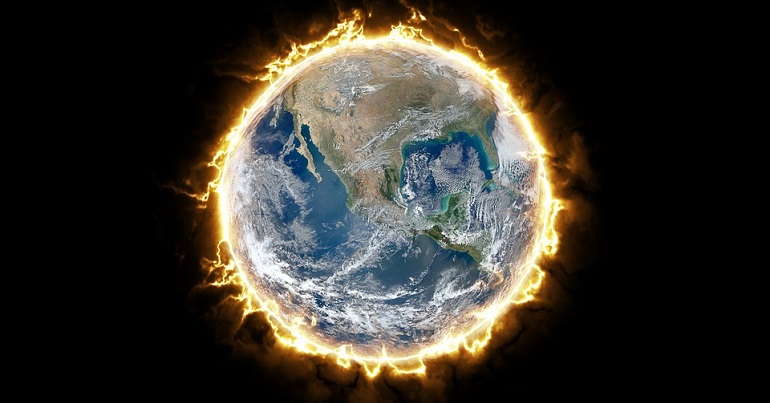The 1976 heatwave is a right wing distraction from climate action

Being less than young I remember the summer of 1976, baking hot for months, reservoirs running dry and our lawn slowly but surely turning brown. 1976 is now part of the right-wing mythology of denial, along with the claim that scientists were agitating about the arrival of an Ice Age, and that environmentalist always prophecy doom. The 1970s are mined for tropes, narratives and anecdotes to keep us ignoring climate change and other environmental threats. Perhaps some of us who were there in the decade of glam rock, three day weeks and Watergate need to put the record straight.
The 1970s saw the growth of green politics, including the founding of PEOPLE in 1973, that eventually evolved into the present Green Party of England and Wales. Ironically or not, several of the founder members were ex-Tories including Edward Goldsmith, editor of the Ecologist magazine.
I don’t remember the Ecologist agitating over a new Ice Age. This seems to have been a minor concern at the fringes of climate science, and the main book advocating this view, Lowell Ponte’s The Cooling (which I have read so you don’t need to!) seems pretty incoherent. Incidentally, a major environmental campaign was to ban lead in petrol, in the dirty 70s and 80s there were many toxins and poisons that harmed us, the green movement from PEOPLE to Friends of the Earth and the Conservation Society worked hard to banish them and make our lives safer.
1976 was a little like the recent heatwave. However temperatures didn’t reach 40°C and there was far less danger to death. Of course, the summer of 1976 was an outlier; in recent years more records have been broken and temperatures continue to head upwards. The summer of ’76 provides no argument for ignoring the effects of climate change.
Let’s go back a little further in time, to the 16th Century, for a better lesson than that of ‘76. When the Daily Mail and Sir John Hayes campaign against taking action either to reduce climate change emissions or to adapt to extreme weather conditions, we might remind them of something Machiavelli (1469-1527) wrote, apparently in 1513. The political thinker is not seen as on the left, nor as an ecologist, but he makes the simple but profound point that while the world may see disasters, preparing for disaster is a good idea:
I compare fortune to one of those dangerous rivers that, when they become enraged, flood the plains, destroy trees and buildings, move earth from one place and deposit it in another. Everyone flees before it, everyone gives way to its thrust, without being able to halt it in any way. But this does not mean that, when the river is not in flood, men (sic) are unable to take precautions, by means of dykes and dams, so that when it rises next time, it will either not overflow its banks or, if it does, its force will not be so uncontrollable. (Machiavelli 2019: 83)
John Hayes would have, I guess, dismissed Machiavelli as a ‘snowflake’ and worked to cut spending on flood prevention in 16th century Florence, if he had lived at the time. Liz Truss seems to be campaigning and winning support from the ever rightward moving Conservative membership, like Hayes, on a policy of ignoring floods, fires and other manifestations of climate change. Adapting to climate change is vital, it will save lives. Working to reduce climate change is even more important but from an ideology instructed by the Daily Mail and increasingly imitating Trump, we are promised only nihilistic neglect. At least they cannot, if we look at the record of events, use the warm summer of 1976 to justify dismissal of the heatwave of 2022.
Derek Wall is a former Principal Speaker of the Green Party of the England and Wales. His most recent book is Climate Strike: The Practical Politics of the Climate Crisis published by Merlin Press.
PS. We hope you enjoyed this article. Bright Green has got big plans for the future to publish many more articles like this. You can help make that happen. Please donate to Bright Green now.
Image credit LQD-Denver – Creative Commons




Leave a Reply